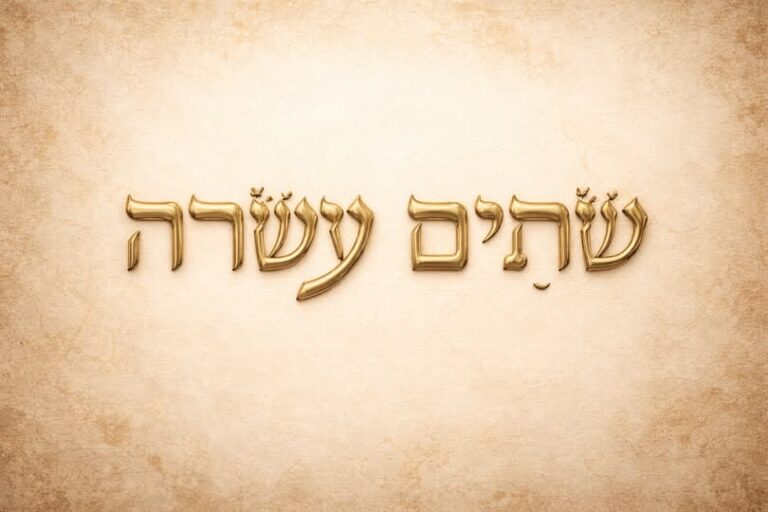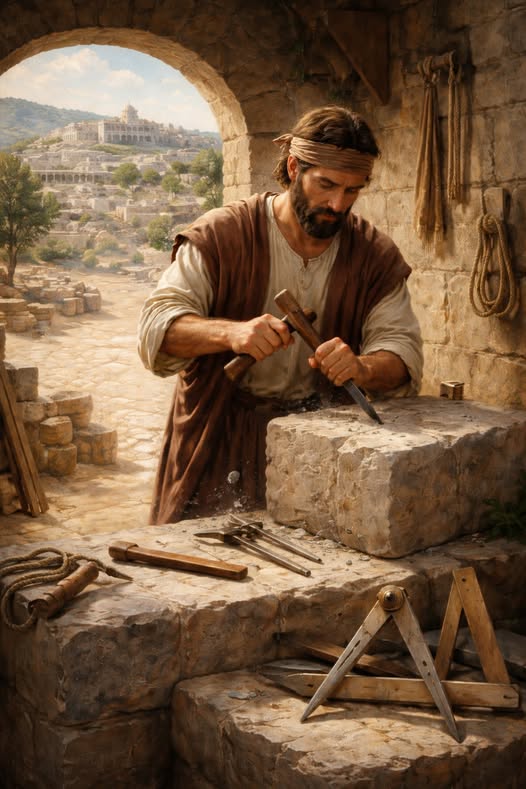
In the world of the Ancient Near East, honor and shame defined the structure of society. A person’s standing in the community determined their worth, and shame was not merely personal; it was public, often irreversible, and tied to familial and tribal identity. Kings were at the pinnacle of this structure. They were expected to maintain their honor at all costs and were often considered above moral reproach so long as their image remained intact.
This cultural context is essential to understanding the events of 2 Samuel 11–12. David, Israel’s most celebrated king, commits adultery with Bathsheba and then conspires to cover up the sin by manipulating her husband, Uriah. Every move David makes is calculated to preserve his reputation. He is not initially concerned with righteousness, justice, or repentance. He is concerned with avoiding shame.
It is important to note that this cultural dynamic is not just ancient history. Honor and shame continue to shape many societies today, especially across the Middle East. The need to maintain family honor and avoid public disgrace often overrides considerations of justice or truth. Understanding this helps modern readers appreciate how deeply embedded these values were in David’s world and how bold the biblical response to his actions truly is.
Uriah: A Foil of Integrity
When David realizes Bathsheba is pregnant, he summons Uriah home from the battlefield under false pretenses. David’s goal is simple: get Uriah to sleep with his wife so that the pregnancy will appear legitimate. But Uriah refuses. His reason is not based on suspicion or bitterness. It is rooted in covenantal loyalty and military discipline. He declares that while the ark, Israel, and Judah dwell in tents, and his fellow soldiers are in the field, he will not indulge in the comforts of home.
This is not mere stubbornness. Uriah was a seasoned warrior, one of David’s elite mighty men. He would have recognized the oddity of being called back so abruptly. The king’s urgent, repeated encouragements to go home, and later his attempt to intoxicate him, would have made David’s intent obvious. And yet, Uriah held firm. He would not be manipulated. Even inebriated, he acted more righteously than David did while sober.
In this, Uriah becomes a moral mirror. His unwavering integrity exposes David’s corruption. He represents what covenant faithfulness looks like: loyal to his comrades, obedient to higher principles, and unwilling to compromise. He is not just a victim. He is the righteous foil whose presence unmasks the king’s descent into treachery.
Though called a Hittite, Uriah had clearly joined the covenant people of Israel. His speech reflects deep reverence for the ark of Yahweh and solidarity with Israel’s military ethics. As a member of David’s elite warriors, he would have undergone conversion and become fully integrated into Israelite life. His foreign ancestry makes his faithfulness all the more striking—he lives out the values of the covenant more faithfully than the king himself.
Uriah’s marriage to Bathsheba also confirms his covenant status. As an Israelite woman of noble descent, Bathsheba could not have lawfully married a pagan Hittite. Uriah would have had to undergo full conversion—embracing circumcision and submission to Yahweh’s law—to be accepted both in marriage and in military service. His life was not only legally integrated into Israel but spiritually aligned with its covenant identity.
The Final Betrayal
With Uriah refusing to provide the cover David needs, the king resorts to murder. He sends Uriah back to the battlefield carrying sealed instructions for Joab, the military commander. These orders direct Joab to place Uriah in the front lines and then pull back, ensuring his death. Joab complies, and Uriah falls.
David then marries Bathsheba, quickly incorporating her into his household. Outwardly, it may have looked like a compassionate gesture toward a fallen warrior’s widow. In reality, it was the final step in a carefully calculated campaign to preserve David’s honor, at the cost of justice, life, and truth.
Nathan’s Confrontation: A Break in the System
Yahweh does not remain silent. He sends the prophet Nathan, who approaches David not with accusation but with a parable. Nathan tells the story of a rich man who steals a poor man’s only lamb, a beloved animal treated like family. David, enraged by the injustice in the story, declares that the man deserves to die.
Then Nathan turns the story: “You are the man.”
This moment is more than dramatic. It is revolutionary. Nathan does not appeal to David’s reputation or his failure to maintain royal dignity. He appeals to the covenant. He accuses David of despising the word of Yahweh and of shedding innocent blood. The prophet bypasses the honor and shame logic of the court and delivers divine moral judgment. This is not about what society sees. It is about what God sees. And that is the shift Yahweh is introducing into Israel’s moral framework.
David’s Response: The Death of Image, the Birth of Repentance
David’s response could have followed the honor and shame script. He could have denied the accusation, retaliated against Nathan, or deflected blame. Instead, he confesses, “I have sinned against Yahweh.”
Psalm 51, traditionally understood to be David’s prayer of repentance after Nathan’s rebuke, reveals the depth of his realization. “Against You, You only, have I sinned and done what is evil in Your sight.” David does not appeal to his kingship, his past service, or public opinion. He casts himself entirely on the mercy of God. He embraces guilt, not because he was caught, but because he finally sees the truth.
This marks a theological turning point. David’s repentance is not framed by shame avoidance, but by moral conviction. This is Yahweh redefining what honor actually is: not public image, but humility before God.
Consequences Without Rejection
David’s sin is forgiven, but the consequences remain. The child born from the affair dies. Violence and dysfunction plague David’s household. His family and kingdom bear scars that will not fully heal. And yet, Yahweh does not cast him off. The covenant stands. David remains king, not because he is righteous, but because he repented. God remains faithful, even when His servant fails.
This balance between justice and mercy is rare in the ancient world, where rulers typically faced no moral accountability. In Yahweh’s kingdom, even the king is under the covenant.
Yahweh’s Method: Working Within to Transform
This episode illustrates how Yahweh chooses to work. He did not place Israel in a moral vacuum. He placed them in a culture saturated with honor and shame values, like their neighbors in Egypt, Canaan, and Mesopotamia. Rather than abolish the culture outright, Yahweh entered into it and began reshaping it from the inside.
He introduced covenantal law that cut against social expectations. He elevated justice, mercy, and faithfulness over appearance. He used prophetic confrontation to teach that guilt is not about being found out, but about standing guilty before Him. The story of David and Bathsheba is a case study in how God slowly transforms a people by confronting their deepest assumptions.
Does Israel Leave Honor and Shame Behind?
Israel never fully abandons the honor and shame framework. It remains embedded in their social and theological imagination. Genealogies, tribal roles, purity laws, and prophetic language all carry traces of it. Even Jesus, generations later, teaches in a world still shaped by those dynamics.
But what the biblical narrative does, beginning with stories like David’s fall, is redefine the foundation of honor. Yahweh consistently shows that true honor is not found in status, military conquest, or social standing, but in righteousness, repentance, and covenant loyalty.
Throughout Scripture, those who are shamed by men are often honored by God—Joseph, Moses, Hannah, the prophets, and ultimately Christ Himself. And those who cling to their image without integrity—like Saul, Ahab, or even David at his worst—are exposed and brought low. In this way, Israel’s story does not reject honor and shame, it reorients them around divine justice.
Conclusion
The story of David, Bathsheba, and Uriah is not merely a personal tragedy; it is also a profound moral lesson. It is a cultural turning point. In a world where kings could preserve honor at any cost, Yahweh strips away the illusion and speaks truth. Through Uriah’s integrity, Nathan’s courage, and David’s repentance, we see the beginning of a new moral vision—one that values truth over image, confession over concealment, and covenant over culture.
God does not destroy honor and shame culture outright. He inserts His people into it, then transforms it by teaching them that what truly matters is not how others see you, but how you stand before Him. This narrative is not just a rebuke of David. It is a moment when Israel is called to grow up. And it is an invitation to every generation to do the same.
Discussion Questions
- How does Uriah’s refusal to go home reflect a deeper understanding of covenant loyalty, and what does it reveal about David’s moral decline?
- In what ways does Nathan’s confrontation with David shift the framework from public shame to divine accountability? Why is that significant?
- How does Yahweh’s response to David—both forgiving him and allowing consequences—demonstrate a balance between justice and mercy?
- What are some modern examples, especially in Middle Eastern or communal cultures, where honor/shame values still shape decisions and behavior? How does the biblical model challenge or affirm these systems?
- How does the story of David, Bathsheba, and Uriah help us understand the broader biblical theme that true honor comes from righteousness and repentance, not reputation?
Want to Know More?
- Misreading Scripture with Western Eyes: Removing Cultural Blinders to Better Understand the Bible by E. Randolph Richards & Brandon J. O’Brien: This foundational work highlights how Western readers, shaped by guilt‑based frameworks, frequently misinterpret biblical narratives that arise from honor‑shame cultures—including the David‑Bathsheba story. It includes a chapter specifically unpacking honor/shame dynamics and their clash with Western conscience‑focused assumptions.
- S. M. Olyan, “Honor, Shame, and Covenant Relations in Ancient Israel and Its Environment,” Journal of Biblical Literature 115 (1996): 201–218: A scholarly article that situates honor and shame within the covenantal worldview of Israel. Olyan explores how honor‑shame categories interact with divine obligation and communal identity in biblical law and narrative.
- Victor H. Matthews, Manners and Customs in the Bible (Hendrickson, 1988, 1991) and Social World of Ancient Israel, 1250–587 BCE (1993): Matthews’ works consistently lead scholarly reflection on how honor and shame functioned socially and morally in Israelite contexts—from legal regulation to family structure and prophetic critique.
- David A. deSilva, Honor, Patronage, Kinship & Purity: Unlocking New Testament Culture (IVP Academic, 2000): Although focused on the New Testament era, this book offers rich cultural insight into honor‑shame systems and how first‑century Mediterranean readers operated within them—valuable for seeing continuity from Israelite culture into early Christianity.
- Jerome H. Neyrey, Honor and Shame in the Gospel of Matthew (Westminster John Knox, 1998): Neyrey’s work explores the gospel’s frequent engagement with honor‑shame themes and how Jesus’ identity and teachings subvert cultural expectations. While centered in the New Testament, it reflects the long trajectory of Israel’s reshaping of honor/shame values.




